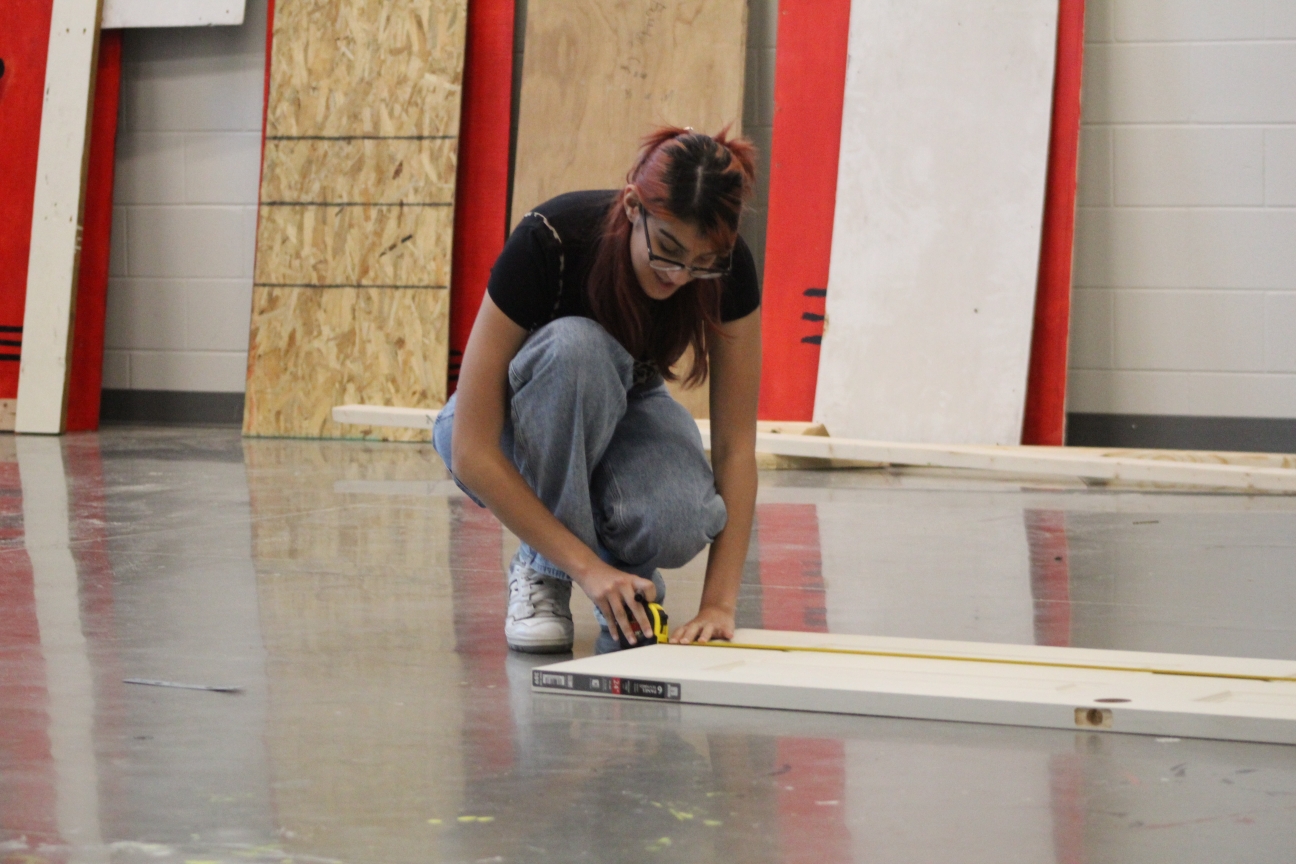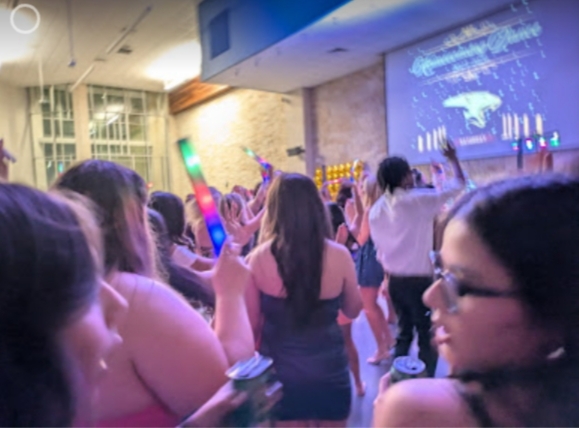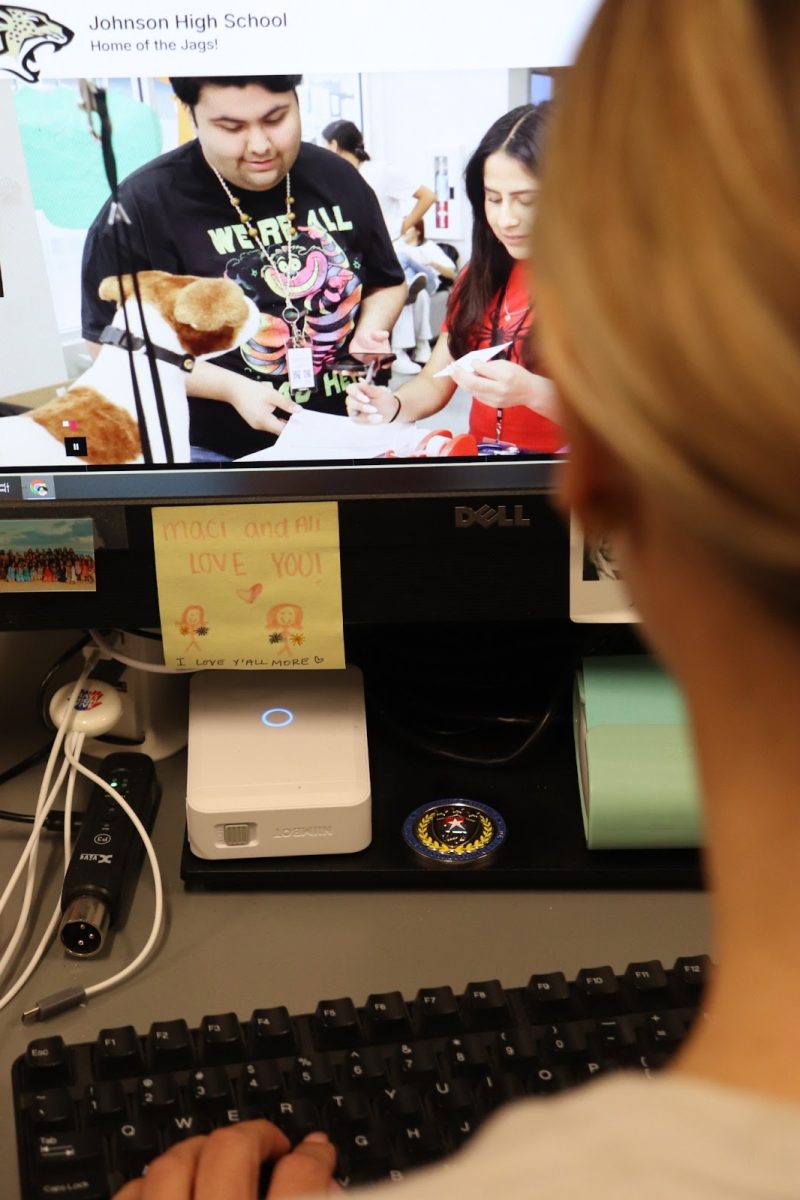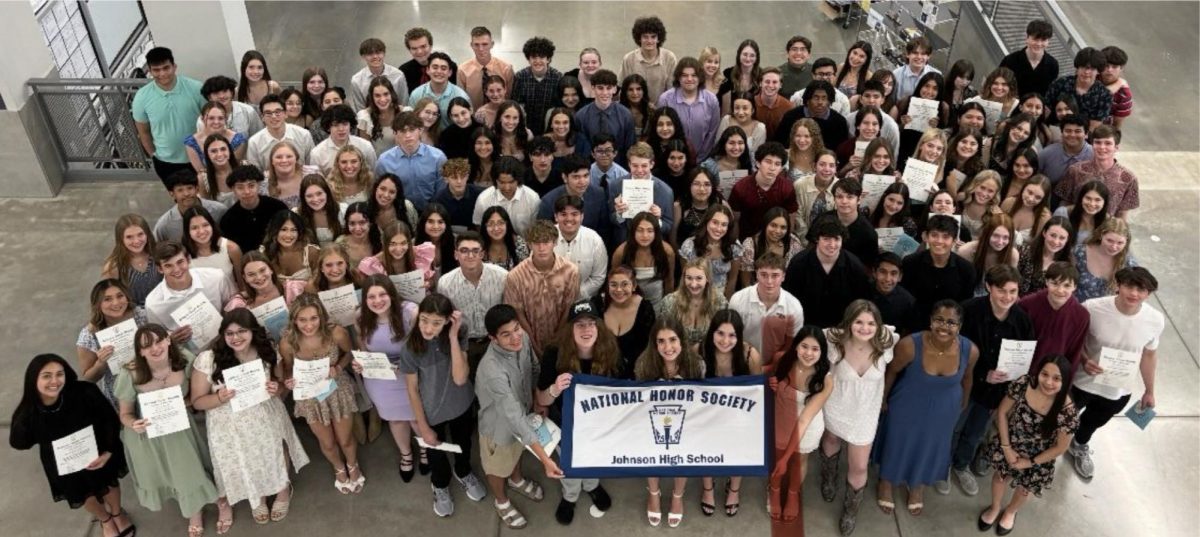Lines bounce on walls and echo through halls. Characters gather around a crime scene in the middle of the conservatory, practicing the perfect shocked and horrified expressions. On an elevated stage, underneath the glare of spotlights and piercing eyes of an audience, someone holds the muses of comedy and tragedy, because they know their story will live on.
The theater program is busy advertising themselves for their first production, Clue, a rendering of the comedy murder mystery board game. Shows are scheduled for Nov. 7 through Nov. 9.
“It’s a little nerve-wracking, but I’ve done tons of shows, so I don’t think I’ll have any problems,” sophomore Hyla Zamora said.
Theater is the art of bringing a wide variety of stories to life on stage for the exact purpose every other tale is preserved: to be shared and kept alive for future generations to hear. The school’s theater program has brought many individuals alike together and has given them an outlet to be themselves. Like any other art form, theater speaks volumes to those who bear the ears to listen to it and [theater]’s narratives, and the school’s theater program is full of those listeners.
“It’s very open to everyone and it doesn’t go by class, race, or popularity,” fine arts theater teacher Jessica Fleming said. “It’s whoever would like to participate. It’s whoever is willing to put the commitment in and go the extra mile and just wants to work together as a group, wanting to have a successful performance, and being consistent day in and day out of the class.”
Starting off the 2024–2025 school year, the theater program was introduced to a new director, Jessica Fleming. This is her first year of teaching at Johnson, and Fleming is well-experienced in the arts of theater, as this is her twelfth year teaching theater. She has a variety of schooling accomplishments regarding the art, such as two degrees: her bachelor’s from Texas State and her masters from the University of Houston. She is currently working on getting her doctorate.
“Since I’m new, I’m trying my best to help the program, stay afloat, build numbers, and go the extra mile,” Fleming said. “I understand that many of the kids went through a tough struggle with losing their teacher in the middle of the year, and so it withered away their ambition to do theater this year because of their fears. It has been a challenge, but we’re trying to work on reconstructing our program.”
To be involved in theater like Fleming and her students, one must know the rules that go with it. Students who work in the program know the principles that go within theater and the expectations it sets out. According to the school’s theater department, the two major principles stand as teamwork and communication. While being good at one’s job is necessary, the art of learning how to work together efficiently and effectively is a skill that theater teaches by and large, according to students and their director.
“Learning to collaborate with one another is important for the kids to understand,” Fleming said. “Not just for theater purposes, but for real-world purposes as well.”
Communication, communicated by students, plays into the teamwork principle and therefore the second biggest aspect of theater. Understanding how to talk with fellow students regarding important information, tips on performances, and basic etiquette is crucial in the program. Otherwise, silly mistakes can be made in the worst of times.
“Communication is the biggest thing in theater, in my opinion,” stage manager Scarlett Teague said. “For instance, we have different call outs that we have to say, like if we’re moving something heavy, then we have to say, ‘Behind!’ It’s kind of like a fancy way of saying ‘Excuse me’. There are different protocols, like ‘quiet off stage’ when we’re trying to listen to the director or stage manager directions. As a stage manager, I think it’s really important to emphasize communication.”
Actors and those involved in the play need months of rehearsals, which break up the play scenes, so every day is dedicated to one scene for the actors to work on lines, stage directions, how to communicate improvements within the production, and how to play their designated roles accurately. Students rehearse during class time every day and after school once every week from 4:30–6:30 p.m.
“Rehearsals consist of tech in a line watching the actors, and when we already have something for the most part blocked we have someone writing down things that could be better like notes.” Zamora said. “We tell [actors] things they have to fix. Like, if you’re a man you can’t have your legs crossed. They have to be spread because you’re an 80-year-old man or something. We basically just watch, write down stuff, tell them things, and then block it out.”
Theater, as a whole, is an art that many students participate in because of the opportunities it gives. It’s brought individuals together and taught significant lessons regarding the structure of life, and continues to do so within the school. theater remains a prominent piece of the world, and the school’s theater students refuse to let it wither away into oblivion with their shows, such as Clue. Tickets for their upcoming show can be bought through HomeTown Ticketing for a student price of $5 and a parent price of $10.
“Theater is important because it teaches people how to express themselves as an audience member and as an actor,” Teague said. “I joined theater in sixth grade just because I needed the fine arts credit, but now I’m a senior and it’s something I want to go into as a career. It’s really been formative in me and reflecting off my own emotions.”








